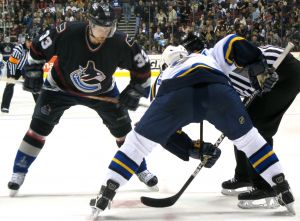
South Carolina brain and head injury lawyers have discussed the negative impact sports can have on an athlete’s body, but have concentrated exclusively on the head injuries that athletes sustain from Big Hits in football. But, recently an article in the New York Times highlighted the issue of brain and head injuries from the perspective of a former National Hockey League (NHL) star, Marty McSorely. Considering that the NHL is in thick of the Stanley Cup Playoffs, the lawyers at Howell Law felt it topical to address the issues discussed by McSorley, primarily the fact that it isn’t the fighting in the league that’s to blame for head injuries, but simply the nature of the game itself.
For informational purposes, here’s a quick bio on Marty, he spent 17-years in the NHL, earning his claim to fame with his physical presence on the ice as “Wayne Gretzky’s Bodyguard” from the mid 80s to early 90s. His style of fearless physical play and his role as an “enforcer” did not come without consequence, he suffered numerous concussions in his career, and now, at 47-years old, he suffers from memory loss and other symptoms often associated with brain injury.
But, the purpose of The Times article was to set the record straight as to the cause of his cerebral injuries. He states, “I want to make this perfectly clear: Did I have a concussion fighting? Probably one or two, yes, but I had more from playing. You can’t point at fighting and say that’s the cause of concussions in hockey.” This came a day after it was announced that researchers had found signs of chronic traumatic encephalopagy, a degenerative disease caused by repeated brain trauma, in the brain of another longtime NHL enforcer, Bob Probert. Let us not forget that these are on the job injuries, for their livelihood guys like McSorley and Probert put their health on the line each time they step on the ice.
The NHL has averaged around 75 concussions per season in recent years, but this season’s total is on pace to be even higher, 84 as of December. McSorley makes an extremely valid point; it is not just the tough guys in the league who get in fights that suffer concussions and head injuries.
Arguably the greatest player to grace the ice since the Great One (Gretzky), the young Sidney Crosby of the Pittsburgh Penguins has had to miss a number of regular season games and has yet to return for the playoffs because of consecutive head hits in games in early January.
With serious head injuries happening to players like Crosby, who play a finesse and skill oriented style of play; its safe to say that fighting in the sport plays only a small part in the damage to players compared to the actual play on the ice.